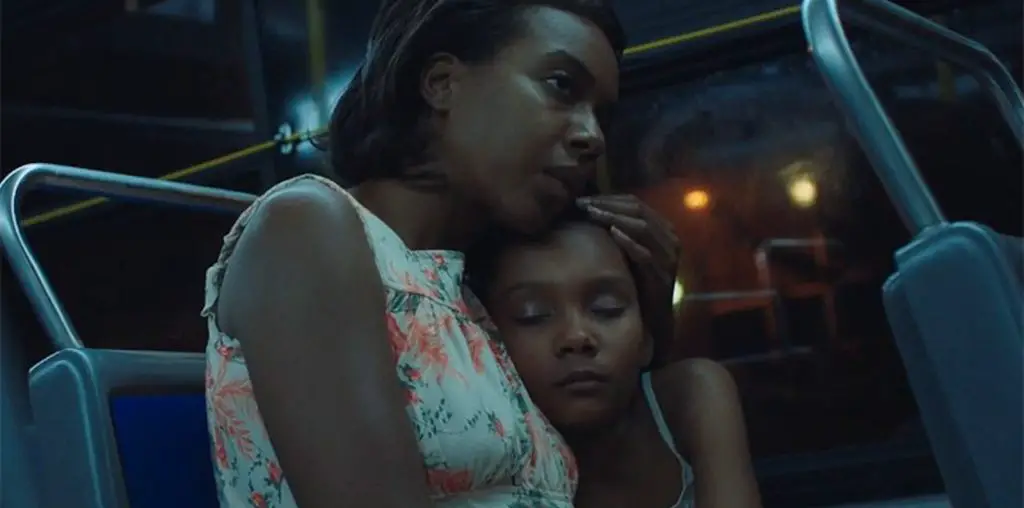
Lilly (Jennifer Derbyshire) is in the third act of her life, and the days are starting to loop in their repetition. Conversations with her daughter and visiting grandchildren all become one big constant discussion. Lilly’s focus is often on the lives of others, or a fixation with the ever-fluctuating status of her health. Each day comes with little variation; lather, rinse, repeat. Can she break the loop, or is this just what it means to be old?
Brett Chapman’s Lilly does a tremendous job of creating the disorienting experience of being stuck in such an elderly repetition of life. When Lilly has trouble with her hearing, so too does the soundtrack distort. When she begins seeing things here and there, so too does the imagery become fantastical. Conversations are dotted with still images, almost like the way saying a word brings about their image in our heads.
It all works together with Derbyshire’s brilliant performance to immerse us in Lilly’s experience, for better or worse. On the positive, there’s the expansion of empathy, either for Lilly or those around her, as we see how the experience wears on all involved. For the negative, Lilly’s loop is often an exhausting one, even just to watch. No one wants to think about what it might be like to run out your days, waiting around to die.
This aspect of waiting bleeds into the film’s running time. Pushing thirty minutes, the short film certainly succeeds in immersing you in the repetition and drag of Lilly’s life, but this accentuates the negative effects on the audience. The mood, tone and direction is set well-enough early on that this is not a film that requires this long a length of time to make its point. There’s a fine line between creating empathy, and wasting that goodwill by overstaying your welcome. This film could probably be just as, if not more, effective coming in under twenty minutes.
And I’ve addressed running time in many a short film review in the past, but there’s also the question of intent with the film. What’s the audience for this film, and how do you get it to them? If the answer is “film festivals,” then the running time is an issue. That’s just a practical, honest truth.
But enough about running time because the film, again, does succeed in creating a powerful experience. The success there is to be appreciated; not every film can engage on such a level of repetition and tedium without losing the audience to boredom. Lilly never suffers in that regard, and its ultimate message is an inspiring one.
This film was submitted for review through our Submission for Review system. If you have a film you’d like us to see, and we aren’t already looking into it on our own, you too can utilize this service.
